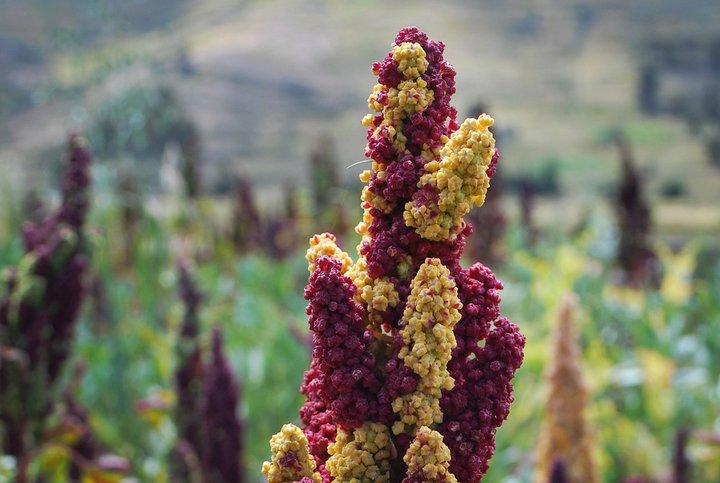New study shows quinoa is good for quinoa farmers

As discussed at length in NPR's The Salt, consumers' quinoa habits benefit not only farmers' incomes but also their nutrition. Bioversity International's Adam Drucker and Stefano Padulosi encourage greater use of quinoa but warn of trouble ahead.
As discussed at length in NPR's The Salt, consumers' quinoa habits benefit not only farmers' incomes but also their nutrition. Bioversity International's Adam Drucker and Stefano Padulosi encourage greater use of quinoa but warn of trouble ahead.
"The price of quinoa tripled from 2006 to 2013 as America and Europe discovered this new superfood. That led to scary media reports that the people who grew it in the high Andes mountains of Bolivia and Peru could no longer afford to eat it." Yet the truth is far from this as the authors of a recently released paper, Foods and Fads: The Welfare Impacts of Rising Quinoa Prices in Peru, claim that the belief that rising quinoa prices were hurting those who had traditionally produced and consumed is "patently false".
Sounds great, right? Unfortunately, there might be trouble ahead due to of the market's dependence on very few of the thousands of different quinoa varieties thus pushing farmers to abandon the cultivation and conservation of many of those varieties.
""Those varieties, created by Andean farmers, are the future of quinoa, to adapt to things like climate change," says Stefano Padulosi, a specialist in underused crops and Drucker's colleague at Bioversity International. He would like to see some sort of global mechanism to reward Andean farmers for their role in creating and maintaining quinoa diversity."
Read the original blog post written by Jeremy Cherfas, ex Science Writer at Bioversity International: Your Quinoa Habit Really Did Help Peru's Poor. But There's Trouble Ahead
